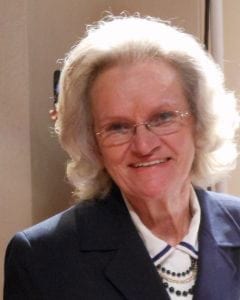Even though most in the medical field suggest that people think about their wishes as to how to handle end-of-life decisions, and complete the paperwork to be sure their wishes are carried out, many people don’t want to think about such things until they either have a serious illness or they reach old age. Doctors often find it difficult to discuss these issues with patients because of the resistance they sometimes meet, but they do expect to have that conversation with someone who is critically ill or has reached old age.
It is a very different situation for parents of a child who has an incurable rare disease. While the doctors might not be able to pinpoint an age or the way in which the child will die, these parents are asked to make agonizing decisions about the final months or days of care long before they have been able to wrap their heads around the situation.
During the many years that I’ve been involved with the rare disease community, there have been advancements made in the medical field providing treatments for some of the children I’ve known, and they have been able to live longer than expected. However, the ravages of the diseases have not been reversed.
I’ve witnessed parents anguish over the decisions they have had to make, often in a crisis situation. Do we try to hang onto life no matter what? When do we know it is time to let go?
Many doctors are very reluctant to talk to the parents of very young children about things like the necessity of a feeding tube and/or breathing tube. It is a painful exercise that parents really do need to think through. They need to decide if the child will still have a quality of life (and many do) under those circumstances. Some parents go through this exercise with more than one child, often wondering if they are doing the right thing.
By the Grace of God, our family was able to find the right help to keep our daughter alive much longer than we originally expected. Some of the situations were extremely anxiety producing for us. She was often so disabled at those times that she didn’t realize just how close to death she came. When she was old enough, we were able to have discussions about the fact that her life would be shortened. She became aware that one day her lungs would no longer keep her alive, no matter what the doctors did. Thus, she signed all of the legal papers for us to be in charge of her care when she was incapacitated, while hanging on to her independence as long as possible.
One time that it looked like she wouldn’t make it, due to the fact that there were so many machines keeping her alive, her doctor happened to be out of town. The nursing staff, who didn’t know us well, seemed to be having a problem, glancing at us and talking quietly among themselves. When I approached one of them and told her that our daughter had an advanced directive on file, she was relieved.
When the end finally did come, we had all of the information at hand, including the name of research doctor who would appreciate a call from the coroner, as well as an autopsy report. We were blessed that our daughter’s final wish was to be able to help others. Her attitude helped us to accept her passing.
No parent ever wants to think about final arrangements for their child! But for rare disease parents, it is a harsh reality.







